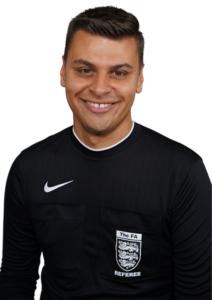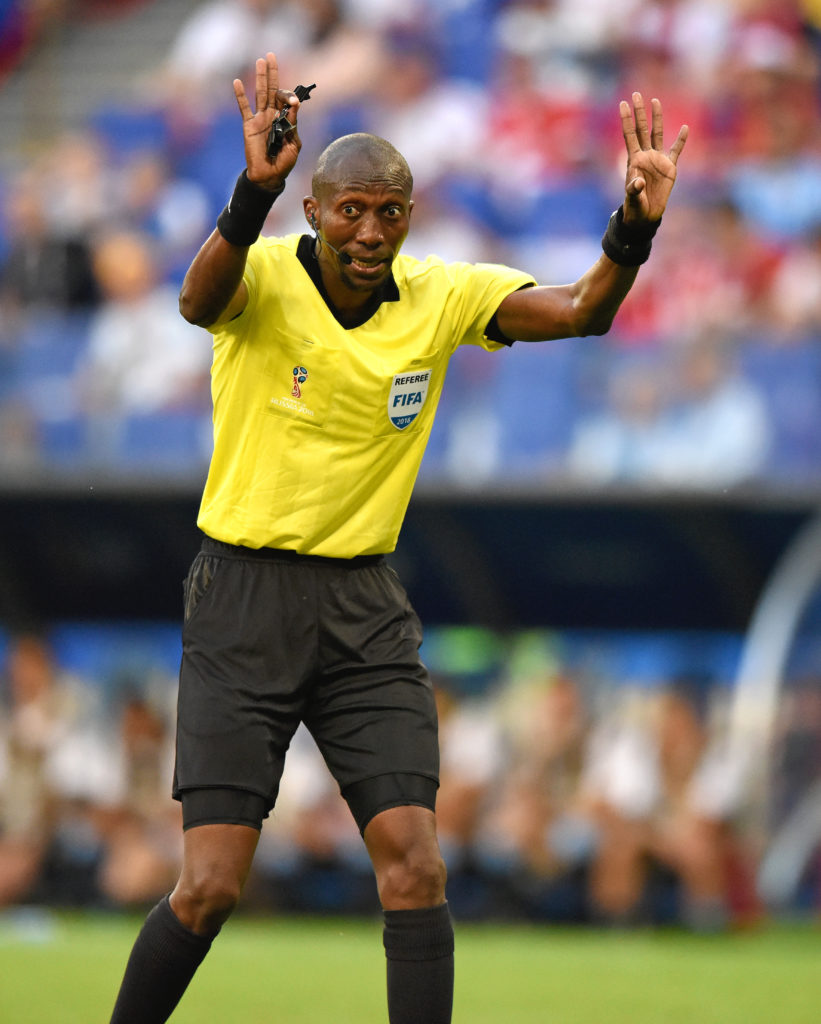The refereeing landscape has changed enormously in recent years. Expectations for good governance, integrity, equality, protection of officials and child safeguarding means that providing safe, fair and inclusive refereeing environments is no longer an aspiration, but an imperative.
The demographic of the communities in which officials operate has also changed dramatically: The FA has 27,451 affiliated referees, of which 1,718 are female and 9.5% are BAME, according to the latest statistics. Our culturally, linguistically and gender diverse communities are looking for officiating opportunities that celebrate diversity, promote inclusion, and most importantly, make people feel like they belong.
What is Inclusion?
Inclusion is pro-active behaviours, options and actions to make people from all backgrounds, ages and abilities feel welcome, respected and that they belong as a referee. Being inclusive is about following best practice for what officiating should be so that everyone can get the most out of it.
What is Diversity?
Diversity is the mix of peoples’ different attributes and backgrounds (i.e. race, ethnicity, gender, age, disability, sexual orientation, religion). A good way to think about diversity is to think about your local community. Does your referees association or football association reflect the diversity of your local community? Diversity is the mix of people, inclusion is trying to get this mix to all work together in harmony.
What is Equality?
Equality is about ensuring that every individual has an equal opportunity to make the most of their lives and officiating talents.
It is also the belief that no one should have poorer refereeing career chances because of the way they were born, where they come from, what they believe, or whether they have a disability.
Making Inclusion Happen
Everyone should have the opportunity to be actively involved in officiating, in whatever capacity they choose. Each referees or football association should be committed to being inclusive and open to all members of the community regardless of age, gender, disability, cultural or religious background or sexual orientation, or other attributes that may lead to any person feeling excluded or isolated.
But the reality is, a tale of missed opportunities still exists. Referees and football associations all over the world are missing out on entire groups of potential officials, administrators and volunteers. More importantly, people who want to referee feel, for a variety of reasons and barriers, excluded and don’t become involved. Here are just a few of the barriers that exist:
Gender
Although people like to think of officiating as being fair and open to all, sometimes individuals or groups are excluded or prevented from participating equally. If the unfair treatment is based on gender, then it could be sex discrimination.
Sexual Orientation
Unfair treatment based on someone’s sexuality – or assumptions about their sexuality – is unfair discrimination and has no place in any refereeing environment. The good news is there are plenty of actions you can take to ensure that homophobia and sexuality discrimination does not exist at your referees or football association.
Disability
Participation rates for people with disability are significantly lower than the general population. While attitudes and practices are changing there is still work to do. There are many practical ideas, tools and strategies you can use to ensure people with disability have every opportunity to participate in activities of their choice.
Race
Racism can have a profound impact on people’s involvement in officiating. It can affect motivation, enjoyment and levels of participation and, if unchecked, may result in inappropriate, potentially dangerous and violent behaviour. Racial harassment, discrimination and vilification have no place in refereeing.
Religion or Belief
The issue of religious vilification is on the radars’ of many officiating groups with a growing number producing codes to stamp out racial and religious vilification. Yet it is only one aspect that needs to be addressed in improving the environment for referees with different religious belief.
What The Law Says
Policies and codes ensure that everyone in officiating is aware of their legal and ethical rights and responsibilities, and provide the procedures to eliminate discrimination, harassment, child protection issues and other forms of inappropriate behaviour. These policies are backed up by national and international laws that make discrimination and harassment unlawful in relation to a person’s gender, sexuality, disability, race, colour, national and ethnic origin, descent, ethnic or ethno-religious background in all areas of life, including refereeing.
How Inclusion is a Force For Good
Positioning yourself and/or your association as a champion of inclusion will:
- Ensure consistency in ‘walking the talk’ to meet your strategic objectives.
- Increase pathway and participation opportunities.
- Increase public support and volunteer base.
- Ensure a more positive public image.
- Provide a better connected and diverse officiating community.
- Break down barriers and promote social inclusion.
To hear me talk in much more depth about inclusion, join myself and thousands of sports professionals from many different disciplines at the Include Summit on the 3rd & 4th May 2023.
At The Third Team I work individually and in collaboration with different professionals where I have developed workshops and 1-2-1 sessions associated with Resilience and Mental Toughness Development to help referees. The workshops and 1-2-1 sessions are interactive, where referees are encouraged to open up and share their experiences to help themselves and each other.
Feel free to contact me if you’d like to know more about my workshops or 1-2-1 sessions and how I could help you or your officials.
Best Wishes,

Nathan Sherratt
Referee Educator & Managing Director of The Third Team

Nathan Sherratt
Nathan Sherratt, Referee Educator, Resilience Trainer and Managing Director of The Third Team. A Mental Toughness Practitioner based in County Durham, North East England.

